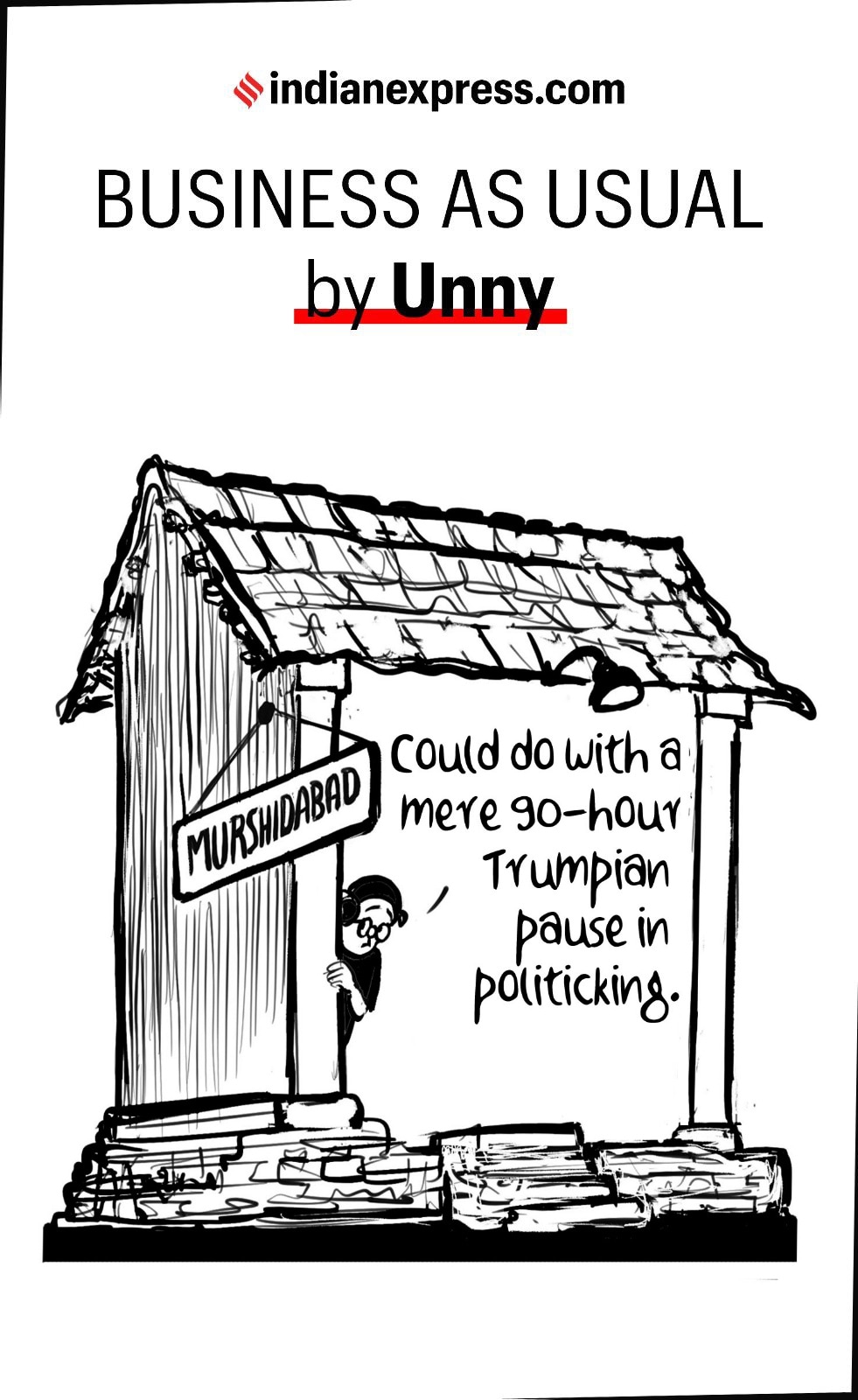London stands to lose a culinary landmark—its oldest Indian restaurant, Veeraswamy. Perched on the iconic Regent Street for 99 years now, Veeraswamy has hosted politicians, actors and royal family members. The Michelin-star restaurant serves up exquisite dishes such as the Patiala Shahi Raan En Croute, a Welsh lamb shank slow-cooked for six hours, wrapped in puff pastry and finished in a tandoor. The menu also includes delicacies like Raj Kachori, Lobster Malabar Curry, Chettinad potatoes, Bori Chicken Biryani, and Bengali Chor Chori. Just shy of a centenary, Veeraswamy now faces an uncertain future. The Crown Estate has declined to renew its lease on the historic Viceroy House. In response, the restaurant’s owner is taking the battle to court to preserve this slice of British-Indian history.
On that note, let’s get to today’s edition.
Big Story
Ripples of the trade war ignited by US President Donald Trump are yet to settle. Amid escalated tensions between the world’s leading economies, the US and China, fresh trouble is brewing for India. Authorities fear that with high tariffs, countries such as China, Vietnam and Indonesia may look to divert trade and dump goods in India, impacting domestic industries, especially electronics, machinery and textiles. Moreover, facing steep retaliatory tariffs from China on the US may result in an increased inflow of the latter’s agricultural products into India. The Commerce Ministry is on high-alert mode to stem the tide.
The impact of Trump’s sledgehammer goes beyond trade concerns. As he shoots fire at rival number one, China, he’s taking down friends and foes alike. As my colleague Shubhajit Roy explains, Trump’s chaotic worldview and fast-eroding goodwill are leaving a dent in India-US ties.
Nonetheless, efforts are being made to negotiate with Trump. As India eyes a swift deal, officials have said that the talks will be based on the “true picture” of bilateral trade—one that also considers the services trade and the large market base India offers for US companies.
Only in Express
The recent violence in West Bengal’s Murshidabad over the controversial Waqf Amendment Act has spotlighted a disturbing trend. As we pieced together a timeline of the events, speaking to various stakeholders, we found that a web of misinformation and provocative messages on social media, amplified by fake accounts and aimed at mass mobilisation, may have resulted in the chaos that unfolded.
Story continues below this ad
🎧 For more on the Murshidabad violence, tune in to today’s episode of the ‘3 Things’ podcast.
From the Front Page
In defence: In another language row in Maharashtra, a petitioner had challenged the use of Urdu on the signboard of a Municipal Council building. The Supreme Court has upheld the use of the language, observing that Urdu, the “finest specimen of Ganga-Jamuni tehzeeb, or the Hindustani tehzeeb”, was not “alien to India”.
Under scanner: Three members of the Gandhi family are facing scrutiny from the Enforcement Directorate in separate cases. The probe agency has filed a chargesheet against Congress leaders Sonia Gandhi, Rahul Gandhi and others concerning its money laundering probe in the National Herald case. It also summoned Robert Vadra, businessman and husband of Priyanka Gandhi Vadra, in a case related to alleged irregularities in a 2007-8 land deal. Read our explainer to know more about Vadra’s case.
Must Read
Rightfully, yours: The Mumbai Police has occupied two flats in the Amar Bhavan building in South Mumbai’s upscale Opera House for an astonishing 84 years. How did Mumbai Police get its hands on these flats? The history traces back to the Defence of India Act under the Britishers. When India gained Independence, the flats were given to the Mumbai Police personnel at nominal monthly rent—Rs 700. Turns out, no rent has been paid in the last 18 years, forcing the original owners to move the matter to the courts and take back what’s theirs.
Story continues below this ad
Global checkers: China is playing an interesting tactic in responding to the stiff US tariffs. Panchatantra, the ancient Indian storybook on statecraft, calls it “mitra-bhedam”, or separating your adversary from his friends. What would it take for China to isolate the US from its Asian allies? Read contributing editor C Raja Mohan’s take.
And Finally…
The day of reckoning for tech giants may be here. Meta is facing an antitrust trial stemming from claims of “illegal monopolisation” over its buyouts of competitors Instagram and WhatsApp. The stakes are high as it could split the $1.4 trillion company apart and set a new precedent for Big Tech operations.
That’s all for today, folks! Until tomorrow,
Sonal Gupta
 Business As Usual by EP Unny
Business As Usual by EP Unny
